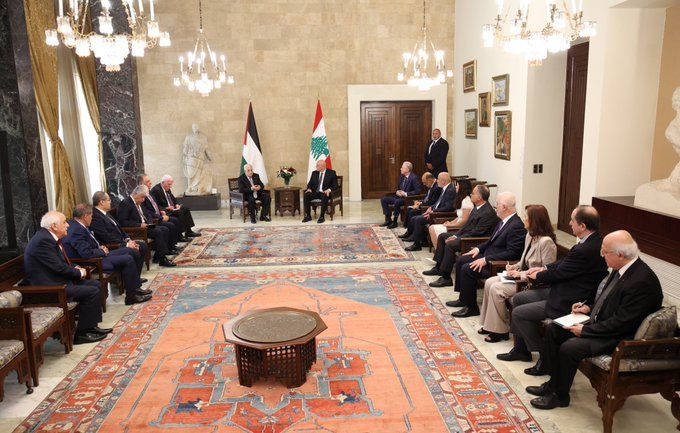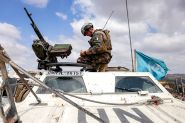
Citing high-ranking political and security sources, Kuwaiti daily Al-Anbaa reported that Lebanon has been given an eight-month deadline to address the long-standing issue of illegal weapons on its soil and to assert full state authority across the country. During this period, international economic aid and reconstruction support will reportedly be put on hold.
The matter took center stage following a meeting of the Lebanese-Palestinian joint dialogue committee, which convened in the wake of Palestinian President Mahmoud Abbas’ recent visit to Beirut. Sources indicate that discussions have gained renewed momentum, with the disarmament of Palestinian factions emerging as a potential precursor to broader efforts to address Hezbollah’s arsenal – a long-standing demand of the international community.
Speaking to Al-Anbaa, sources criticized the Lebanese government’s lack of a defined timetable for the disarmament process. “The establishment of a schedule for Palestinian disarmament could open the door to similar measures concerning Hezbollah,” one source stated, lamenting the state’s failure to articulate a clear strategy.
The issue is expected to dominate the agenda during US Deputy Special Envoy for the Middle East Morgan Ortagus’ upcoming visit to Beirut. According to diplomatic sources, Washington considers the window for dialogue on Lebanon’s weapons dilemma to be rapidly closing.
In a recent interview with Lebanese television Al-Jadeed, Ortagus emphasized that “disarming militias and terrorist groups, as well as implementing long-overdue reforms, is the only way to unlock real and lasting investment in Lebanon.” She echoed this position in a separate interview with LBCI on May 15, stressing that the disarmament of Hezbollah must occur not only south of the Litani River but throughout the country.
Meanwhile, sources close to the Fatah movement, the dominant faction within the Palestinian Authority, told Al-Anbaa that while they are ready to comply with Lebanese state directives, they will not disarm unilaterally. Instead, they call for a reciprocal commitment from other Palestinian groups, particularly Hamas, which are not part of the Palestine Liberation Organization (PLO).
According to Huna Lubnan, President Abbas has conveyed to Lebanese officials that Palestinian arms not only infringe on Lebanese sovereignty but also harm the Palestinian cause. He has reportedly expressed full and unconditional support for the surrender of all Palestinian weapons, declaring them unjustifiable under current conditions.
Sources further emphasized that Lebanon will not engage in separate negotiations with non-PLO armed factions. “The Lebanese state deals solely with the official Palestinian leadership represented by President Abbas and the PLO,” the sources affirmed, underscoring that this leadership has reiterated its respect for Lebanon’s sovereign decisions.
The discussions in Beirut reportedly concluded with a mutual understanding of the need for swift, tangible action. Participants agreed to draft a concrete implementation mechanism and a firm timetable to be launched after the Eid al-Adha holiday. Crucially, sources stressed that this process remains distinct from any potential dialogue between the Lebanese presidency and Hezbollah regarding weapons north of the Litani.



Comments